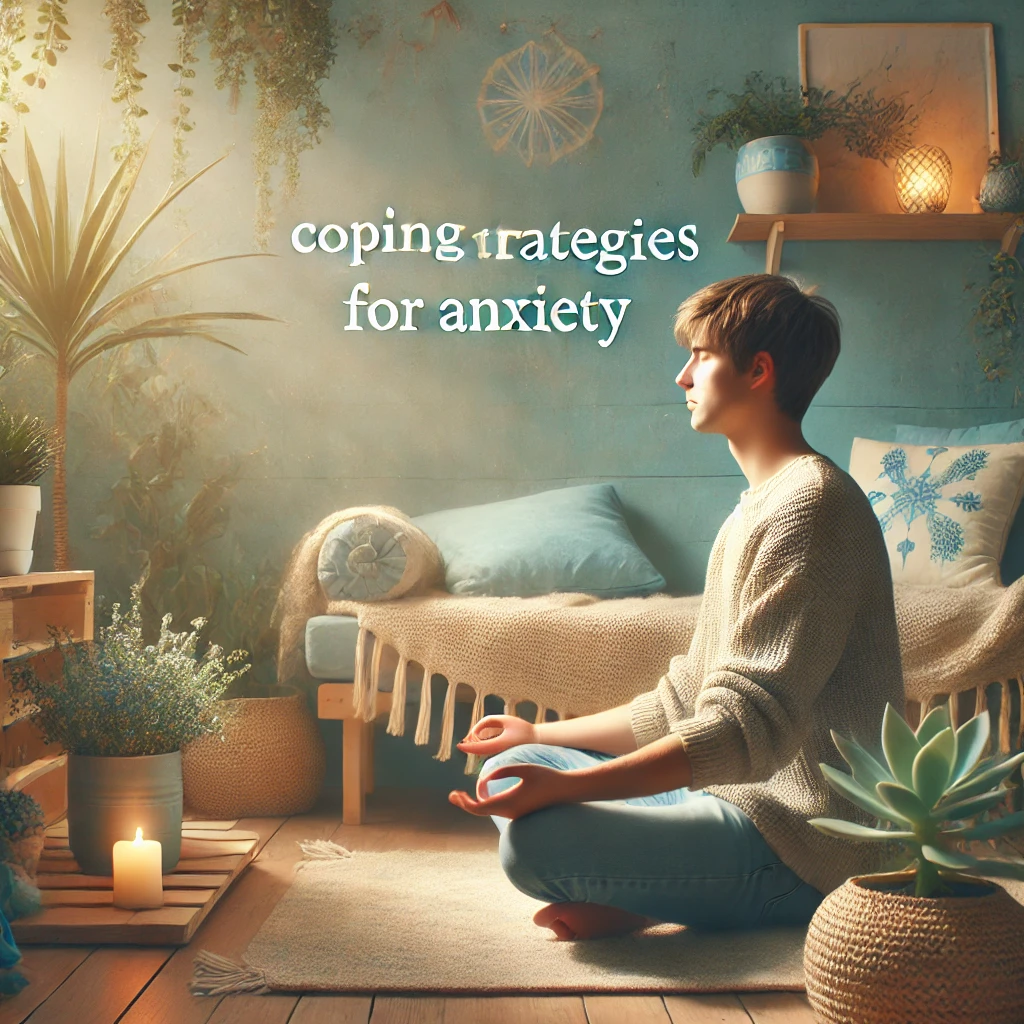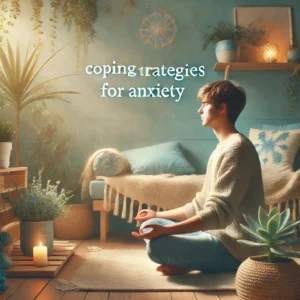Anxiety is a natural response to stress. It can manifest in various ways, such as racing thoughts, physical tension, or feelings of dread. Recognizing that anxiety is a common experience helps me feel less isolated. It’s essential to understand that while anxiety is a part of life, it doesn’t have to control my life.
Why Coping Strategies Matter
Contents
- Empowerment: Having coping strategies empowers me to take charge of my anxiety instead of feeling like a victim.
- Improved Well-Being: Effective coping techniques enhance my overall mental health and well-being.
- Enhanced Resilience: Learning to manage anxiety builds resilience, helping me bounce back from stressful situations more easily.
- Better Relationships: When I manage my anxiety well, I communicate more effectively and maintain healthier relationships.
Effective Coping Strategies for Anxiety
Let’s explore some practical coping strategies that have helped me manage anxiety effectively.
1. Deep Breathing Exercises
Deep breathing is one of the simplest yet most effective techniques I use to calm my mind and body. When I feel anxious, I take a moment to focus on my breath. Here’s how I do it:
- Sit comfortably with my feet flat on the ground.
- Inhale deeply through my nose for a count of four.
- Hold my breath for a count of four.
- Exhale slowly through my mouth for a count of six.
Repeating this process several times helps slow my heart rate and promotes relaxation.
2. Grounding Techniques
Grounding techniques help bring me back to the present moment when anxiety feels overwhelming. One method I find useful is the 5-4-3-2-1 technique:
- Identify five things I can see around me.
- Name four things I can touch.
- Acknowledge three sounds I can hear.
- Recognize two smells in the environment.
- Identify one thing I can taste.
This exercise helps shift my focus away from anxious thoughts and back to reality.
3. Physical Activity
Exercise is a powerful way to relieve anxiety. When I engage in physical activity, my body releases endorphins, which elevate my mood. Whether it’s going for a run, practicing yoga, or dancing in my living room, moving my body helps reduce stress levels. I aim for at least 30 minutes of moderate exercise most days of the week.
4. Mindfulness Meditation
Practicing mindfulness meditation has been transformative for managing my anxiety. By focusing on the present moment without judgment, I learn to observe my thoughts and feelings rather than react to them. I often use guided meditation apps or simply sit quietly for a few minutes each day to practice mindfulness.
5. Journaling
Writing down my thoughts and feelings in a journal helps me process emotions and gain clarity. When I feel anxious, I take time to jot down what’s bothering me and explore possible solutions. Journaling not only provides an outlet for expression but also allows me to reflect on patterns in my thinking that contribute to anxiety.
6. Limit Caffeine and Alcohol
Both caffeine and alcohol can exacerbate anxiety symptoms. I’ve noticed that when I consume too much caffeine, it increases my heart rate and makes me feel jittery. Reducing these substances has helped me maintain a calmer state throughout the day. Instead, I opt for herbal teas or water to stay hydrated without added stressors.
7. Establish a Routine
Creating a daily routine helps provide structure in my life, which can be comforting during anxious times. By setting regular times for meals, exercise, work, and relaxation, I create predictability that reduces uncertainty. Having a routine gives me a sense of control over my day-to-day life.
8. Practice Self-Compassion
Being kind to myself during anxious moments is crucial. Instead of criticizing myself for feeling anxious, I remind myself that it’s okay to experience these feelings. Practicing self-compassion allows me to approach anxiety with understanding rather than judgment. I often use affirmations like “I am doing the best I can” to reinforce this mindset.
9. Connect with Others
Social support plays an essential role in managing anxiety. When I’m feeling overwhelmed, reaching out to friends or family members provides comfort and perspective. Sharing my feelings with someone who understands can alleviate the burden of anxiety significantly. I make an effort to spend time with loved ones regularly; their presence helps ground me during tough times.
10. Seek Professional Help
If anxiety becomes unmanageable or interferes with daily life, seeking help from a mental health professional is important. Therapy provides valuable tools for coping with anxiety effectively and offers support tailored to individual needs. Talking through challenges with a trained professional has led to significant breakthroughs in managing stress and anxiety.
Creating Your Personal Coping Plan
To effectively manage anxiety long-term, I’ve developed a personalized coping plan that incorporates various strategies:
Step 1: Identify Triggers
I keep track of situations or events that trigger my anxiety in a journal. Identifying these triggers helps me develop proactive strategies to address them before they escalate.
Step 2: Set Realistic Goals
I set achievable goals related to managing anxiety—like committing to regular exercise or practicing mindfulness daily—to keep myself motivated throughout the journey.
Step 3: Monitor Progress
Regularly reviewing my progress helps me stay accountable and adjust strategies as needed. If something isn’t working, I’m open to trying new approaches until I find what suits me best.
Conclusion
Coping strategies for anxiety are vital tools that empower us to take charge of our mental health. By incorporating techniques like deep breathing exercises, grounding methods, physical activity, mindfulness meditation, journaling, and seeking support into our daily lives, we can cultivate resilience against life’s challenges.



